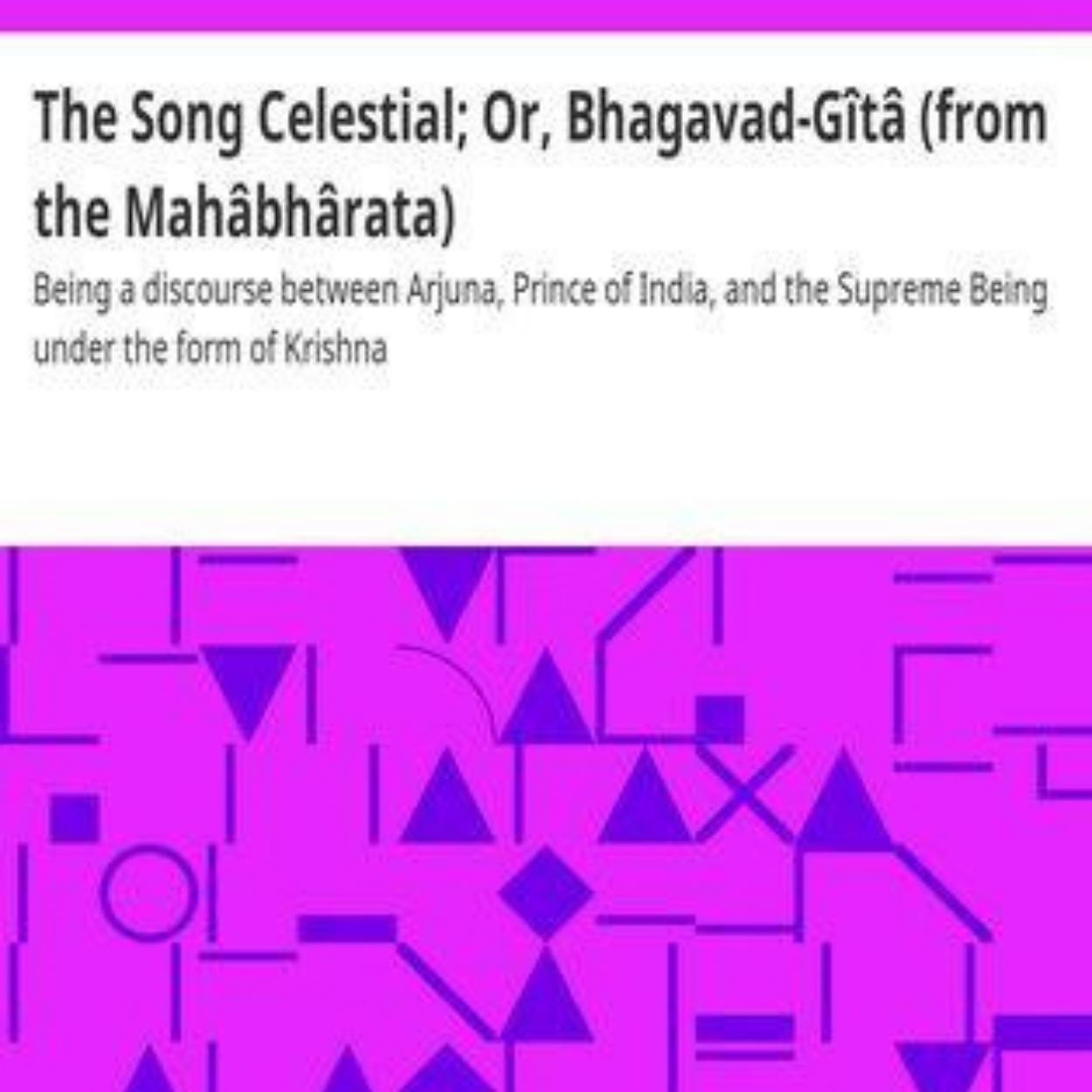The Bhagavad Gita

The Project Gutenberg EBook of The Bhagavad-Gita By Business Mentor presents a profound exploration of spiritual teachings within this timeless Indian scripture. The narrative unfolds as a dialogue between Prince Arjuna and the deity Krishna on the battlefield of Kurukshetra. Arjuna grapples with moral and existential dilemmas, torn between his duty as a warrior and the ethical complexities of violence. Krishna, serving as Arjuna’s charioteer, imparts wisdom encompassing duty, righteousness, devotion, and spirituality.
The teachings of The Bhagavad-Gita are unveiled through three distinct paths: Karma Yoga (the path of selfless action), Bhakti Yoga (the path of devotion), and Jnana Yoga (the path of knowledge). Krishna emphasizes the significance of adhering to one’s dharma (duty) while detaching from the results, promoting righteousness and personal growth.
Throughout the dialogue, Krishna highlights the eternal nature of the soul, comforting Arjuna in times of despair and loss. He introduces the concept of selfless action, urging Arjuna to fulfill his duties without attachment to success or failure, a philosophy known as Karma Yoga. Bhakti Yoga is elucidated as the practice of devotion, surrender, and unwavering faith in the divine. Additionally, Jnana Yoga is explained as the path to self-realization and understanding the soul’s transcendental nature.
Krishna imparts divine wisdom, granting Arjuna the ability to perceive the cosmic form, symbolizing the interconnectedness of all existence. Arjuna, inspired by Krishna’s teachings, overcomes doubt and hesitation, embracing his duty as a warrior with courage and resolve.
The Bhagavad-Gita’s teachings extend beyond its immediate context, offering profound insights into the human experience, spirituality, and the pursuit of self-discovery. Its timeless wisdom continues to guide individuals across cultures and generations.
This digital rendition of The Bhagavad-Gita from Project Gutenberg ensures universal access to its invaluable teachings, preserving its legacy for generations to come.
- Arjuna’s Dilemma: Arjuna, a warrior prince, faces moral and existential dilemmas on the battlefield of Kurukshetra. He’s torn between duty and the ethics of violence.
- Krishna’s Counsel: Lord Krishna, Arjuna’s charioteer, imparts wisdom encompassing duty, righteousness, devotion, and spirituality. He unveils Karma (action), Bhakti (devotion), and Jnana (knowledge) paths.
- Dharma Defined: Krishna emphasizes following one’s dharma (duty) without attachment to results. This leads to righteousness and spiritual growth.
- Karma Yoga: Krishna introduces Karma Yoga, performing actions selflessly without craving outcomes, emphasizing selfless duty.
- Bhakti Yoga: Krishna explains Bhakti Yoga—devotion to the divine, surrender, and unwavering faith, fostering a deeper connection.
- Jnana Yoga: Krishna elucidates Jnana Yoga, self-realization and understanding the soul beyond the body, leading to liberation.
- Immutable Soul: Krishna highlights the eternal soul’s nature, offering solace in loss, clarifying the distinction between the physical and spiritual.
- Detachment and Renunciation: Krishna advises detached duty, relinquishing attachment to success or failure, fostering equanimity.
- Universal Vision: Krishna grants Arjuna divine sight, revealing the cosmic form—illustrating existence’s interconnectedness.
- Action’s Call: Krishna urges Arjuna to rise above doubt, fear, and hesitation, fulfilling his duty with decisiveness.
- Wisdom’s Legacy: Arjuna accepts Krishna’s teachings, and The Bhagavad-Gita’s enduring wisdom continues to guide individuals in life’s journey.
- Ever-Relevant: The Bhagavad-Gita’s insights transcend time, offering guidance in the pursuit of meaning and self-discovery.




